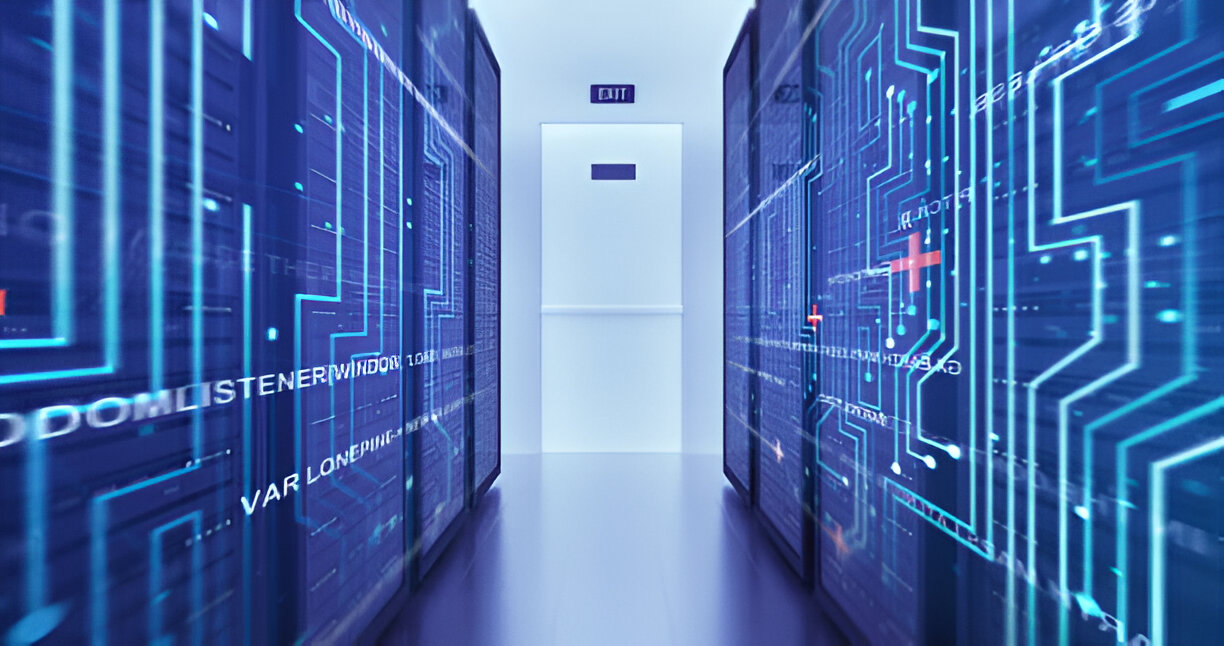In today’s competitive hospitality market, the landscape of hotel guest management has evolved dramatically. With diverse guest preferences and increased demand for personalized services, many hotels grapple with questions such as: Are you struggling to meet guest expectations? Can your current system really improve guest satisfaction? The need for a robust solution is more critical than ever. Enter Salesforce hospitality CRM—a powerful tool designed to tackle the challenges of modern hotel management by enhancing guest experiences and optimizing operations. This article will explore how Salesforce hospitality CRM can transform your hotel guest management strategies, making them more efficient while improving guest satisfaction.
Benefits of Salesforce Hospitality CRM
Streamlined Hotel Guest Management
Salesforce hospitality CRM simplifies hotel guest management by consolidating multiple operational elements into a single, coherent platform. This integration means that all team members—from front desk staff to marketing professionals—work from a unified system, minimizing errors and improving efficiency. Key processes like check-ins, room allocations, and customer feedback collection can be automated. For instance, integrating with property management systems enables real-time updates, ensuring guests’ preferences and statuses are always up to date.
Moreover, Salesforce offers customizable workflows that adapt to specific hotel requirements. This means staff can easily communicate with each other and share pertinent information, bolstering coordination and service quality. When all departments have access to the same guest information, hotels can ensure a seamless experience from booking to check-out.
Enhanced Personalization Features
One of the standout attributes of Salesforce hospitality CRM is its ability to provide enhanced personalization features that elevate guest experiences. Utilizing advanced Artificial Intelligence (AI) and data analytics, the system segments guests based on preferences, behaviors, and past interactions.
For instance, with Salesforce’s customer engagement tools, hotels can easily track and analyze guest profiles. This allows for tailored marketing campaigns and offers that resonate with individual guests. A luxurious resort could target returning guests with personalized discount offers or special packages based on their previous stays, enhancing loyalty and overall satisfaction. Furthermore, with Salesforce’s Journey Builder, hotels can automate communication before, during, and after a guest’s stay to ensure they feel valued every step of the way.
Key Features of Hospitality CRM
Robust Data Analytics Tools
Data analytics is a game-changer for hotels aiming to enhance guest experiences. Salesforce hospitality CRM provides advanced analytics tools that empower managers with insights into operational efficiency, occupancy rates, and guest behaviors.
By harnessing data collected from various touchpoints, hotels can identify trends and areas needing improvement. For example, if a particular type of room consistently receives lower ratings, management can delve into the specifics of guest feedback to make targeted improvements. Additionally, data-driven insights enable hotels to forecast demand trends and adjust pricing strategies accordingly, ensuring competitiveness in the market.
Multi-Channel Communication Support
In today’s digital age, effective communication across multiple platforms is essential. Salesforce hospitality CRM supports various communication channels, including email, SMS, social media, and mobile apps, ensuring seamless guest interaction.
Imagine a guest who prefers to communicate via WhatsApp. Salesforce allows hotels to engage those guests through their preferred channels, enhancing satisfaction and accessibility. Furthermore, with integrated chatbots powered by Salesforce AI, hotels can provide instant responses to inquiries, creating a swift and positive customer experience. This multi-channel approach encourages engagement, increases guest satisfaction, and creates opportunities for up-selling services seamlessly.
Implementing Salesforce for Hotels
Step-by-Step Implementation Process
Integrating Salesforce hospitality CRM into hotel operations necessitates a strategic and phased approach. The steps can include:
- Assessment: Evaluate existing systems and operational challenges to identify specific needs.
- Custom Configuration: Tailor Salesforce features to match the unique requirements of the hotel.
- Data Migration: Transfer relevant guest and operational data from old systems into Salesforce while ensuring data integrity.
- Training: Implement comprehensive training sessions for all staff users to maximize the use of the system.
- Launch: Roll out Salesforce, monitoring closely for issues and gathering feedback.
- Iteration: Regularly review system performance and adapt to evolving needs.
By involving key staff at every stage, hotels can foster a culture of support and enthusiasm around the new system, ensuring successful adoption.
Common Challenges Faced During Implementation
While adopting Salesforce hospitality CRM can significantly transform guest management, hotels may encounter hurdles during the implementation process. Potential challenges include:
- Staff Resistance: Employees may resist new technology. To overcome this, engage them early in the process and showcase the benefits they’ll experience.
- Data Integration Difficulties: Merging data from various sources can be complex. Hotels should allocate resources for data cleansing, ensuring that accurate and actionable insights are maintained.
- Training Gaps: Inadequate training can lead to underutilization of the system. Comprehensive training programs and ongoing support can help mitigate this risk.
Employing stakeholder feedback loops throughout the implementation can also help identify and address these challenges proactively.
Case Studies of Successful Hotel Implementations
Hotel A: Transformative Results
One landmark example of effective Salesforce hospitality CRM implementation is Hotel A, a luxury boutique hotel that faced declining guest satisfaction ratings. After integrating Salesforce, the hotel leveraged its analytics features to assess guest feedback comprehensively.
Using insights gleaned from the system, Hotel A revamped its room service menu based on the most common guest requests and preferences analyzed through the CRM. The results were impressive—a 30% uplift in customer satisfaction scores within six months and a significant increase in repeat bookings.
Hotel B: Notable Guest Experience Improvements
Conversely, Hotel B, a mid-sized hotel chain, utilized Salesforce primarily to streamline its guest interactions and automation processes. By using the multi-channel communication features, they connected with guests via email and SMS before, during, and after stays.
The hotel reported a 25% increase in positive online reviews and received direct feedback indicating that guests appreciated timely updates and personalized offers during their booking process. This improvement created a loyal customer base that often returned for repeat stays.
Future of Hotel Guest Management with CRM
Upcoming Trends in Hospitality CRM
Tomorrow’s CRM systems in the hospitality industry will emphasize advanced technologies that facilitate even better guest management. Emerging trends include personalized AI-driven recommendations for services and experiences based on prior guest behavior, making every guest interaction memorable.
Salesforce is already paving the way for these trends with its continuous updates, integrating features that harness machine learning to predict guest needs before they arise. These advanced functionalities will not only empower hotels to meet expectations but exceed them, transforming simple transactions into lasting relationships.
Preparing for Tomorrow’s Guests
To effectively prepare for tomorrow’s guests, hotels must adopt an agile mindset. This includes continuously adapting services based on feedback and emerging trends in the hospitality industry.
By investing in technology that promotes agility—such as mobile check-ins, contactless payments, and personalized guest engagement strategies—hotels can retain their competitive edge. Additionally, focusing on employee training around these technologies fosters a culture that prioritizes exceptional service, creating an environment where both staff and guests thrive.
Choosing the Right CRM for Your Hotel
Factors to Consider in Selection
When selecting a CRM for your hotel, consider the following factors:
- Scalability: Choose a solution that can grow with your hotel’s needs.
- Integration Capabilities: Ensure the CRM can seamlessly integrate with existing systems.
- User-Friendliness: A straightforward interface is essential for staff adoption.
- Customer Support: Opt for vendors that offer robust training and ongoing support.
Salesforce stands out in these areas, offering a comprehensive suite specifically tailored for the hospitality industry.
Cost-Benefit Analysis of Various CRMs
The cost of implementing a hospitality CRM varies widely based on features and scaling. Here’s a comparative overview:
| CRM Solution | Initial Cost | Monthly Fees | Key Features |
| Salesforce | Moderate | Variable | Comprehensive analytics, integration tools |
| Hotelogix | Low | Fixed | Simplistic functionality but less customizable |
| Maestro PMS | High | Moderate | Tailored for luxury market but expensive |
| Cloudbeds | Moderate | Variable | Great for scalability and multi-property management |
Conducting a cost-benefit analysis over time will highlight the long-term ROI of investing in Salesforce hospitality CRM, considering productivity improvements, guest retention, and enhanced features.
Conclusion
Salesforce hospitality CRM offers game-changing solutions for hotel guest management, transforming the guest experience with streamlined processes, enhanced personalization, and robust data analytics. By utilizing these features, hotels can adapt their strategies effectively, driving both guest satisfaction and operational efficiencies. In this ever-evolving landscape, staying ahead becomes crucial.
As an AI-first company and a trusted authority, Wildnet Edge provides support for hotels looking to implement Salesforce and improve their guest management strategies. If you’re ready to enhance your hotel operations and guest experiences, consider how Salesforce hospitality CRM can be the catalyst for your success.
FAQs
Q1: What makes Salesforce hospitality CRM different from other CRMs?
Salesforce hospitality CRM offers specialized features tailored for hotel guest management, enhancing personalization and streamlining operations.
Q2: How can Salesforce improve hotel guest management?
By providing powerful data analytics and multi-channel communication tools, Salesforce enables hotels to better understand and cater to their guests’ needs.
Q3: What are some key features of Salesforce for hospitality?
Key features include robust data analytics, customer engagement tools, and integration capabilities that streamline hotel management processes.
Q4: What challenges might hotels face when implementing a hotel CRM?
Common challenges include staff resistance, data integration issues, and the need for proper training on the new system.
Q5: How can hotels prepare for future trends in guest management?
Hotels can adapt by investing in innovative technology, understanding guest preferences, and being flexible in service delivery.

Nitin Agarwal is a veteran in custom software development. He is fascinated by how software can turn ideas into real-world solutions. With extensive experience designing scalable and efficient systems, he focuses on creating software that delivers tangible results. Nitin enjoys exploring emerging technologies, taking on challenging projects, and mentoring teams to bring ideas to life. He believes that good software is not just about code; it’s about understanding problems and creating value for users. For him, great software combines thoughtful design, clever engineering, and a clear understanding of the problems it’s meant to solve.
 sales@wildnetedge.com
sales@wildnetedge.com +1 (212) 901 8616
+1 (212) 901 8616 +1 (437) 225-7733
+1 (437) 225-7733















 ChatGPT Development & Enablement
ChatGPT Development & Enablement Hire AI & ChatGPT Experts
Hire AI & ChatGPT Experts ChatGPT Apps by Industry
ChatGPT Apps by Industry ChatGPT Blog
ChatGPT Blog ChatGPT Case study
ChatGPT Case study AI Development Services
AI Development Services Industry AI Solutions
Industry AI Solutions AI Consulting & Research
AI Consulting & Research Automation & Intelligence
Automation & Intelligence















